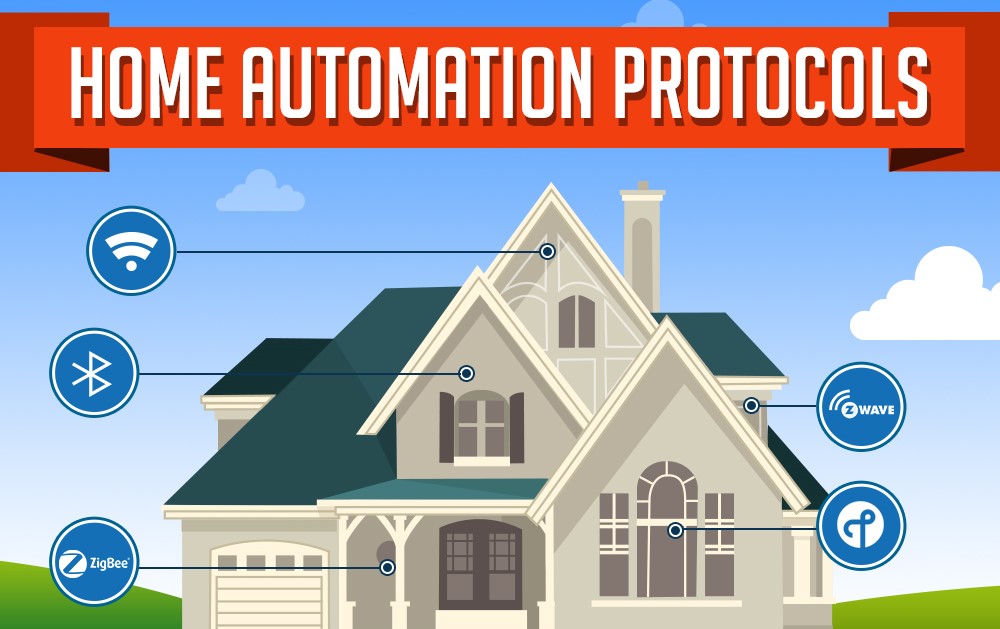As we gradually transition into worldwide smart homes, Home Automation Protocols or Network Protocols will be the most important technical function. Network Protocols serve as the connections over vast distances that allow smart devices to communicate with one another. Smart homes could use the incumbent protocol, but WiFi presents interference problems from existing devices (such as laptops and smartphones) that would quickly drain loads of battery power. Furthermore, smart devices will require more power as they increase functions and performance (such as video camera doorbells, which need to transfer video data instantly when someone pushes the doorbell button), requiring the home to adopt more powerful network protocols.
A lot of new protocols, depicted in the image below, have been developed, which creates an increasingly fragmented market in which different devices are unable to talk to one another.
Despite the many options, our team at smarthomeSAGE predicts that the Bluetooth Low Energy (BLE) protocol will ultimately be the winning standard for the following reasons:
- Widespread Adoption: The majority of smartphones already have regular Bluetooth connectivity. This will reduce the amount of integration and change required by cell phone manufacturers, who already have limited space within the phone to add additional protocol hardware.
- Mesh Network Adoption: BLE is in the process of moving toward a mesh network style (instead of the star network or direct-to-hub connection). This will effectively increase the range of the network as each connected device will, in turn, become a range booster.
- Low Energy: Although this protocol is not the lowest energy, it is far lower than WiFi and regular Bluetooth.
One thing that could impact BLE is that it utilizes the same frequency to transmit data as WiFi. As more and more devices connect to the same bandwidth, there will be a decrease in performance, which will be most evident in big cities where there are a large number of devices in a concentrated area. This will also open the opportunity to be hacked, as each device is essentially another entrance to your home. We suggest that each home utilizes a hardware based home network firewall to protect them.
Which protocol do you think will win the smart home race?
This is a guest post by Joseph Mack from smarthomeSAGE, a blog that analyzes the impact that smart home technology has on home life. You can follow him on Twitter or Facebook.
Related Posts













